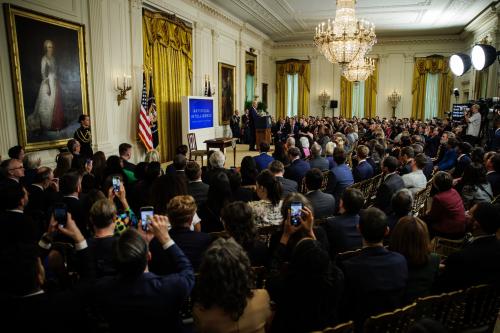Unlike past shutdowns, which largely took place before the Internet era unfolded, this one represents the first time that agencies have been told to close down digital operations along with their bricks and mortar establishments. It therefore is a shock to learn as a result of the government shutdown that the Zoo has suspended the panda cam and numerous government agencies are shutting down their websites. The videos of Tian Tian, Mei Xiang, and the new baby have been very popular with the general public.
Yet because the Zoo received federal money, it has been shut down for the duration of the funding crisis. Zoo officials have notified their staff that “liability may result if we allow staff who are not identified as ‘excepted’ to work either at their office, from another site, or from home during the shutdown.”
The same is true for certain government websites. People enjoy being able to order reports, access data, or renew licenses online. The convenience of being able to do this at one’s leisure as opposed as during the regular work week has been popular with ordinary folks. They don’t have to take time off from work or interrupt their weekly schedules.
The National Aeronautics and Space Administration has informed the public that it “will not have televised access to NASA operations and programming or access to the NASA Web site.” The Federal Trade Commission site will go offline and instead visitors will see splash pages with no content and a message that the usual information is not available. People who track legislative bills through the THOMAS page of Congress will find that it is closed. And the Department of Veterans Affairs says it will update its website intermittently.
In one swell swoop, the, 21st century government in the United States will grind to a halt in many agencies and people will be back to the pre-Internet world of books, magazines, and print resources. After years of online access and instantaneous access to digital material, Internet users will not have the kind of access they have come to expect.
At the very time when we need citizens to engage with government and understand what is happening in Washington, D.C., it will be harder to find timely information. Members of Congress should find ways to keep government videos online and maintain public access to public sector resources. An informed public through electronic government is a virtue, not a vice.


Commentary
Save the Pandas! Don’t Close Government Videos and Websites
October 1, 2013